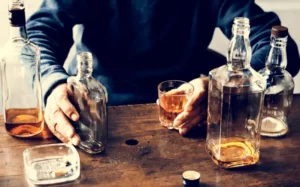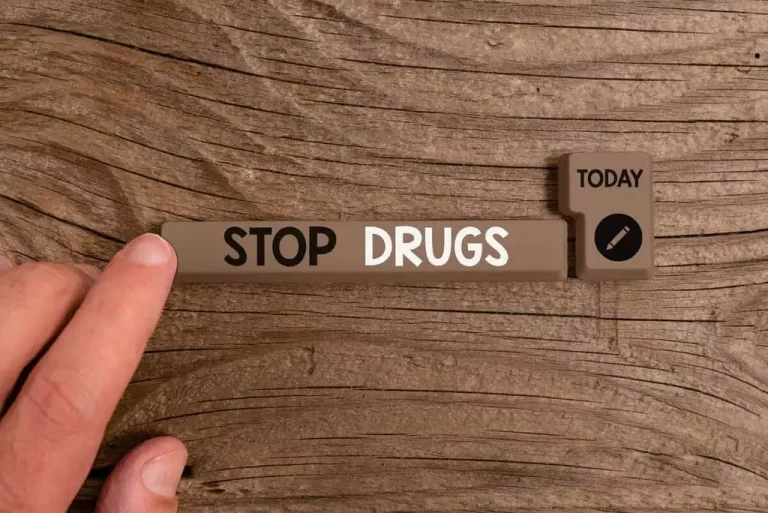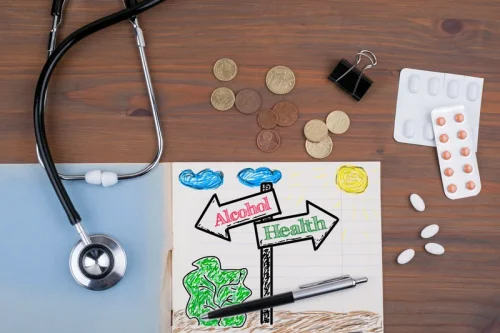
These combinations can be particularly harmful when combined with alcohol because they provide “ hidden” doses of acetaminophen. As described in the previous section, alcohol consumption may result in the accumulation of toxic breakdown products of acetaminophen. Opioids are agents with opium-like effects (e.g., sedation, pain relief, and euphoria) that are used as pain medications. Accordingly, all patients receiving narcotic prescriptions should be warned about the drowsiness caused by these agents and the additive effects of alcohol. Like barbiturates, benzodiazepines (BZDs) are classified as sedative-hypnotic agents and act through the same brain molecules as do barbiturates. Accordingly, as with barbiturates, concurrent consumption of BZDs and moderate amounts of alcohol can cause synergistic sedative effects, leading to substantial CNS impairment.
How Mouth Swab Drug Tests Work
Alcohol, like some medicines, can make you sleepy, drowsy, or lightheaded. Small amounts of alcohol can make it dangerous to drive, and when you mix alcohol with certain medicines you put yourself at even greater risk. Combining alcohol with some medicines can lead to falls and serious injuries, https://ecosoberhouse.com/ especially among older people. Some medicines that you might never have suspected can react with alcohol, including many medications which can be purchased “over-the-counter”—that is, without a prescription. Even some herbal remedies can have harmful effects when combined with alcohol.
Topics under Alcohol Use Disorder
This excessive warfarin activity results from alcohol-related inhibition of warfarin metabolism by cytochrome P450 in the liver (Lieber 1994). Conversely, in people who chronically drink alcohol, long-term alcohol consumption activates cytochrome P450 and, consequently, warfarin metabolism. As a result, warfarin is broken down faster than normal, and higher warfarin doses are required to achieve the desired anticoagulant effect. Thus, alcohol consumption can result in dangerously high or insufficient warfarin activity, depending on the patient’s drinking pattern.

What are the dangers of mixing sleeping pills with alcohol?
- Revia and Vivitrol are not like other anti-alcohol drugs that cause intense sickness and hangover sensations when taken with alcohol.
- A person typically begins using acamprosate on the fifth day after they stop drinking, with the medication reaching full effectiveness in 5-8 days.
- A decrease in the alcohol-induced mortality rate led to a slightly lower combined rate of all U.S. deaths due to alcohol, drugs, and suicide in 2022, but the long-term trend of such deaths is still alarmingly high.
- If you’re not sure if a medication can be combined with alcohol, avoid any alcohol consumption until your doctor or pharmacist has told you that it’s safe to mix the two.
- The latest information and resources on mental disorders shared on X, Facebook, YouTube, LinkedIn, and Instagram.
These observations imply that ALDH2 plays a crucial role in maintaining low acetaldehyde levels during alcohol metabolism. Consequently, even inadvertent alcohol administration to people of Asian heritage (who may have inherited an inactive ALDH2 Alcohol and Pills gene) can cause unpleasant reactions. Thus, the potential flushing response should be an important concern for physicians and patients, because many prescription and OTC medications contain substantial amounts of alcohol (see table 1).

Over-the-Counter Pain Medications
Several classes of antidepressant medications exist, including tricyclic antidepressants (TCAs), selective serotonin reuptake inhibitors (SSRIs), monoamine oxidase (MAO) inhibitors, and atypical antidepressants. These classes differ in their mechanism of action in that they affect different brain chemicals. All types of antidepressants, however, have some sedative as well as some stimulating activity. Potential alcohol-medication interactions involving cytochrome P450 enzymes (CYP) in the liver.

Alcohol use can have a big effect on the people close to you, so couples or family therapy can help, too. Doctors and other experts can keep an eye on you and give you medicine to help with your symptoms. If you’re thinking about suicide, are worried about a friend or loved one, or would like emotional support, the Lifeline network is available 24/7 across the United States. You will want to understand what will be asked of you in order to decide what treatment best suits your needs. Matching the right therapy to the individual is important to its success.
The contribution of bacteria living in the large intestine (i.e., colon) to gastrointestinal alcohol metabolism is still controversial. Laboratory experiments have demonstrated that these bacteria can metabolize alcohol. In addition, a breakdown product of alcohol (i.e., acetaldehyde) is generated in the colon after alcohol administration. Finally, studies in rats found that animals treated with an antibiotic to reduce the number of bacteria in the colon showed a reduced alcohol elimination rate compared with untreated rats (Nosova et al. 1999). If these research findings also apply to humans, alcohol elimination may be delayed in people taking certain antibiotics that are active against colonic bacteria. When alcohol is ingested through the mouth, a small amount is immediately broken down (i.e., metabolized) in the stomach.

- The Substance Abuse and Mental Health Services Administration’s (SAMHSA) helpline provides free, confidential, 24/7 support for people in distress.
- Kava Kava, an herbal preparation, is sometimes used to treat these conditions.
- Successful AA members usually become sponsors once they have been senior members in recovery for at least a year.
- Gracia says drug overdoses, in particular, rose relentlessly in the past ten years as synthetic opioids gained in popularity.
Combining alcohol with Concerta, Ritalin, or Focalin can worsen concentration. Adderall, Dexedrine, and Vyvanse can increase a person’s risk for heart problems. Antidepressants can cause drowsiness and dizziness that can be made worse with alcohol. Mixing any of the antidepressants below with alcohol can also increase feelings of depression or hopelessness. Here’s a list of medications that can negatively interact with alcohol along with descriptions of what those interactions may look like. In addition, the older we get, the more likely we are to be taking one or more medications that could interact with alcohol.
‘Ozempic Diet’? Foods to Eat and Avoid on a GLP-1 Obesity Drug
- Some people are surprised to learn that there are medications on the market approved to treat AUD.
- NSAIDs like ibuprofen (Advil, Motrin), naproxen (Aleve) and diclofenac mixed with alcohol use can also cause stomach problems like ulcers.
- The same was true of mental health services that do not receive government funding, with private psychiatric hospitals the sole exception.


No Comments to Treatment for Alcohol Problems: Finding and Getting Help National Institute on Alcohol Abuse and Alcoholism NIAAA so far. (RSS Feeds for comments in this post)
No one has commented so far, be the first one to comment!